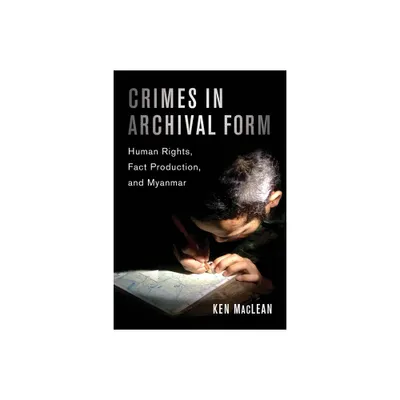Home
Cyberformalism: Histories of Linguistic Forms the Digital Archive
Loading Inventory...
Barnes and Noble
Cyberformalism: Histories of Linguistic Forms the Digital Archive
Current price: $52.00


Barnes and Noble
Cyberformalism: Histories of Linguistic Forms the Digital Archive
Current price: $52.00
Loading Inventory...
Size: Hardcover
*Product Information may vary - to confirm product availability, pricing, and additional information please contact Barnes and Noble
A groundbreaking study of how abstract linguistic signs circulate in literature, intellectual history, and popular culture.
Linguistic forms are essential to meaning: like words, they make a semantic contribution to the things we say. We inherit them from past writers and speakers and fill them with different words to produce novel utterances. They shape us and the ways we interpret the world. Yet prevalent assumptions about language and the constraints of print-finding tools have kept linguistic forms and their histories hidden from view.
Drawing on recent work in cognitive and construction grammar along with tools and methods developed by corpus and computational linguists, Daniel Shore’s
Cyberformalism
represents a new way forward for digital humanities scholars seeking to understand the textual past. Championing a qualitative approach to digital archives, Shore uses the abstract pattern-matching capacities of search engines to explore precisely those combinatory aspects of language—word order, syntax, categorization—discarded by the “bag of words” quantitative methods that are dominant in the digital humanities.
While scholars across the humanities have long explored the histories of words and phrases, Shore argues that increasingly sophisticated search tools coupled with growing full-text digital archives make it newly possible to study the histories of linguistic forms. In so doing, Shore challenges a range of received metanarratives and complicates some of the most basic concepts of literary study. Touching on canonical works by Shakespeare, Milton, Wordsworth, and Kant, even as it takes the full diversity of digitized texts as its purview,
asks scholars of literature, history, and culture to revise nothing less than their understanding of the linguistic sign.
Linguistic forms are essential to meaning: like words, they make a semantic contribution to the things we say. We inherit them from past writers and speakers and fill them with different words to produce novel utterances. They shape us and the ways we interpret the world. Yet prevalent assumptions about language and the constraints of print-finding tools have kept linguistic forms and their histories hidden from view.
Drawing on recent work in cognitive and construction grammar along with tools and methods developed by corpus and computational linguists, Daniel Shore’s
Cyberformalism
represents a new way forward for digital humanities scholars seeking to understand the textual past. Championing a qualitative approach to digital archives, Shore uses the abstract pattern-matching capacities of search engines to explore precisely those combinatory aspects of language—word order, syntax, categorization—discarded by the “bag of words” quantitative methods that are dominant in the digital humanities.
While scholars across the humanities have long explored the histories of words and phrases, Shore argues that increasingly sophisticated search tools coupled with growing full-text digital archives make it newly possible to study the histories of linguistic forms. In so doing, Shore challenges a range of received metanarratives and complicates some of the most basic concepts of literary study. Touching on canonical works by Shakespeare, Milton, Wordsworth, and Kant, even as it takes the full diversity of digitized texts as its purview,
asks scholars of literature, history, and culture to revise nothing less than their understanding of the linguistic sign.


















